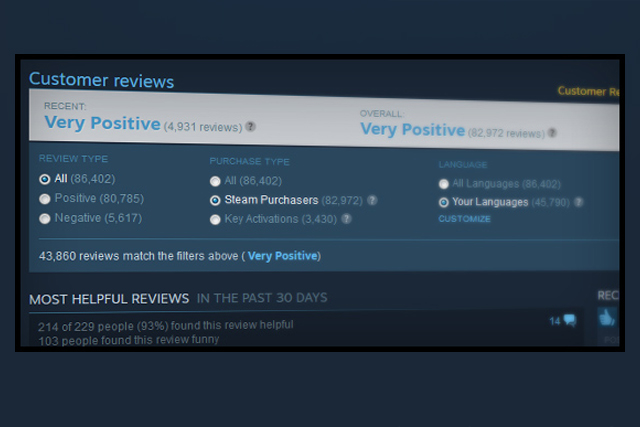
This problem is something Valve has purportedly been looking into for some time. It noticed that games which were activated via a key tended to have — on average — higher scores than those games that were purchased through Steam. Although most people were no doubt still being honest, clearly some people weren’t.
In some cases Valve believes people were deliberately paid off to give a positive review, or were at least thankful for receiving a free code and therefore less likely to complain. In other cases Valve thinks developers used alternative accounts to vote up their own games too.
This is something that Valve couldn’t permit to continue, which is why from now on reviews activated via a key, rather than through Steam directly, will not contribute to the recent or overall ratings for a game. You can still write the review and people can still mark it as helpful, but it won’t contribute to the overall rating of the game.
Valve admits in its breakdown that this will likely cause some game ratings to change quite fundamentally, with some perhaps losing all of their reviews altogether (in cases where there are only a few) or dropping into a lower category of game (to mixed, from positive, for example). However Valve argues that since any impacted reviews will still be visible, this is just something the developers will have to put up with.
Moving forward, Valve also pledges to look into the “brigading” of reviews, where a minority are able to influence how a game is presented through upvoting “helpful” reviews that align with their thoughts on a game — perhaps representing it as good when it’s bad and vice versa. It also wants to stop reviews that are mainly designed to be funny from dominating the “helpful” section, as that doesn’t help people to make a knowledgeable purchase.
What do you guys think of this move? Do you think it will encourage more developers to offer a demo for consumers to try?



